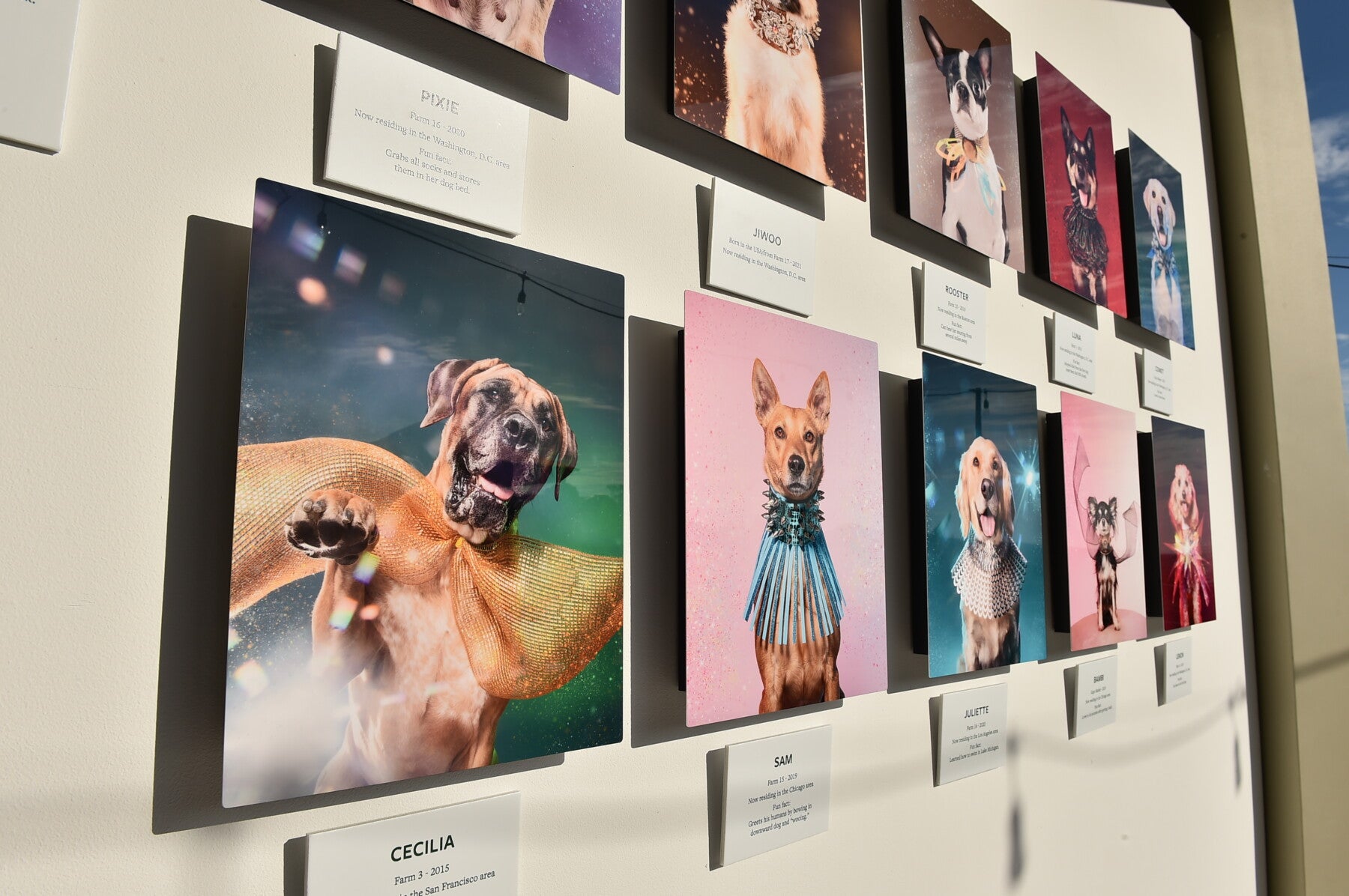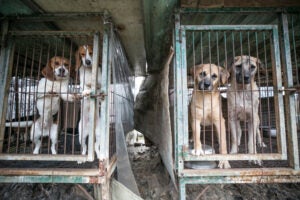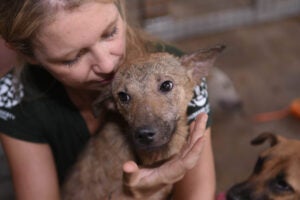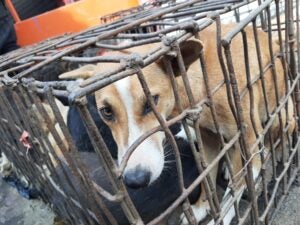
Chinese animal activists intervened to save the life of the last dog found alive at a dog meat shop in Yulin, Guangxi province, a month before the city’s summer solstice dog meat eating gets underway. The dog, named Lucky by his rescuers, was found chained up outside the shop, with a dog meat for sale sign in front of him. The Akita was the last dog of the day due scheduled for slaughter before the activists persuaded the shop keeper to give him up. There were obvious signs he had once been a pet dog and had therefore likely been stolen by dog thieves.
In light of China’s COVID-19 precautions, Chinese animal activists are urging Yulin authorities to ban the city’s annual June gathering for the so-called “Lychee and dog meat festival” for which the slaughter of dogs and cats for consumption increases. Launched in 2010 by dog meat traders to boost flagging sales, the event starts on June 21st and can attract thousands of visitors from across the province in southern China, who gather to eat dog meat stew and crispy dog meat at the city’s restaurants and stalls. Activists are appealing to local authorities to stop the mass public gathering from going ahead, to protect public health and animal welfare.
Liang Jia, a Guangxi activist, said: “The streets of Yulin are relatively quiet right now, and although you can see a few dog meat shops, stalls and dog slaughterhouses like normal, it’s nothing compared to how it will look in mid-June. While elsewhere in China, cities are in COVID-19 lockdown, it makes no sense for Yulin dog meat traders to be allowed to encourage visitors to travel across the province and into the city. As well as the appalling animal cruelty that will take place with thousands of dogs and cats bludgeoned to death, it’s an obvious public health risk. The Yulin authorities should be taking this seriously because it would be hugely embarrassing for the Yulin dog meat festival to become a super-spreader event.”
Most people in China don’t eat dogs, and even in Yulin, polls show that most citizens (72%) don’t regularly eat dog despite efforts by dog meat traders to promote it. Nationwide, there is significant Chinese opposition to the dog meat trade as concern for animal welfare grows. In 2020, China’s Ministry of Agriculture and Rural Affairs made an official statement that dogs are companion animals and not “livestock” for eating. That same year, two major cities in mainland China – Shenzhen and Zhuhai – banned the consumption of dog and cat meat, a decision polling showed was supported by nearly 75% of Chinese citizens.
Dr Peter Li, China policy specialist for Humane Society International which supports the care of dogs rescued from China’s meat trade, said: “Lucky had a narrow escape because only one blowtorched dog carcass was left on sale at the shop, meaning he would have been next. But Lucky is just one of millions of dogs who suffer at the hands of dog traders across China, and one of thousands who end up in Yulin for the summer solstice event. His rescuers say he was super friendly, used to walking on a leash and happily jumped into the back of the activists’ car without hesitation, so it seems clear that he was once someone’s pet, and indeed many of the dogs killed for meat are pets stolen from back yards, outside shops and even from cars. COVID-19 precautions add another compelling reason to crack down on dog trade gatherings like this, in addition to the brutal cruelty and criminal activity.”
Download photos & video here.
ENDS
Media Contacts:
- United Kingdom: Wendy Higgins, HSI director of international media: whiggins@hsi.org





